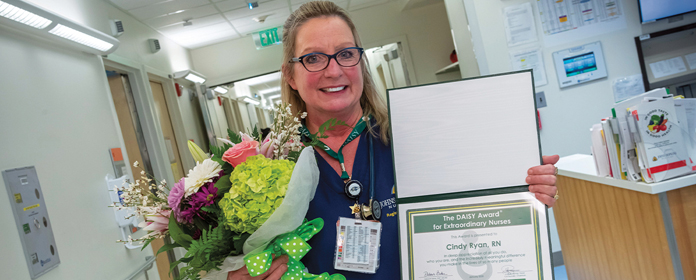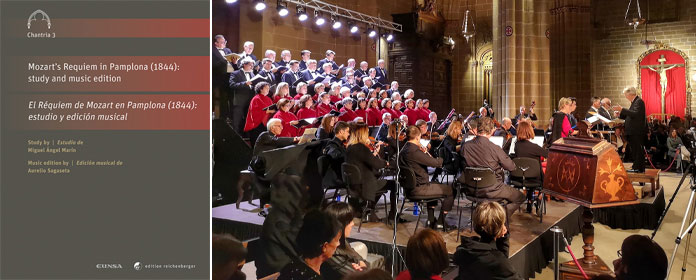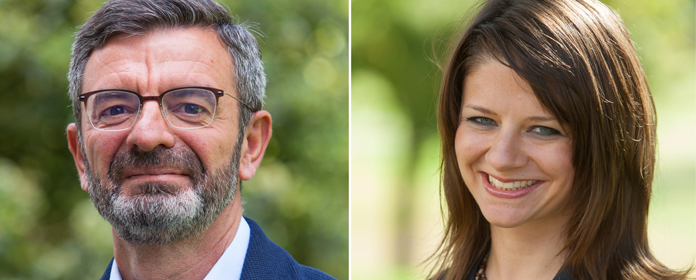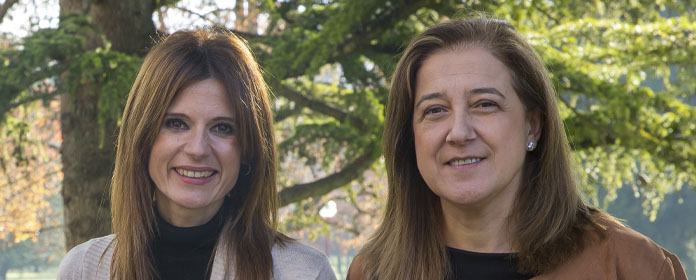"Palliative care changes the life of the sick person and those who accompany them".
Carlos Centeno, expert in palliative care of the Institute for Culture and Society (ICS) and the Clínica Universidad de Navarra, highlights this discipline in the central report of the magazine Nuestro Tiempo.
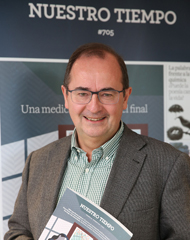
PHOTO: Manuel Castells
"Palliative care does not cure the patient, but it heals in the deepest spheres of the person. It changes their lives and the lives of those who accompany them". This is how Carlos Centeno, researcher principal of th e ATLAN TES Palliative Care Program of the ICS and of the Department of Palliative Medicine, expressed himself today. Institute for Culture and Society (ICS) and director of the Service of Palliative Medicine of the Clínica Universidad de NavarraOn the occasion of the central report of the last issue of the magazine Nuestro Tiempo, which has been presented at press conference.
According to what he added, palliative care is "a global view of the person" and involves "a special way of approaching the patient. This implies, on the one hand, "being an expert in symptom and pain control," he said, and on the other, "supporting and reassuring patients, so that they can feel in good hands and regain hope in the context of a complicated status ".
In this regard, he alluded to the experience of the daughter of a patient he treated 17 years ago. Her mother, in a rural and remote area, was in great pain and she was expecting a child at the time. "We decided to admit the sick woman because she needed pain control. Many were recommending that her daughter terminate the pregnancy because she couldn't cope with so much. The palliative team stood by her side: some of the nurses were mothers and they went with her, and she went ahead with the pregnancy. We accompanied them and helped them through the whole process."
When the patient passed away, her daughter sent her a letter in which she told them: "Today, I owe a little piece of my life to you. And, coincidentally, "this very morning, she sent a message expressing her indelible gratitude and affection," he said.
Dr. Centeno lamented that the issue of palliative care services in Spain is not sufficient to meet the needs of the most seriously ill. "We have about a quarter of the services we need. The European Palliative Care association recommends two per 100,000 inhabitants and in this country there are 0.6," he said.
"To improve our status we need more well-trained professionals. This costs money, but it is not expensive. We need to dedicate more resources from the healthcare system to palliative care," he proposed.
Testimony of a patient who died of cancerDr. Centeno made these statements on the framework of the presentation of the central report of the last issue of the magazine Nuestro Tiempo, graduate "Palliative care: a medicine that heals when it cannot be cured". He is one of the experts interviewed by the publication, which has talked to professionals from several countries and collects stories of patients with incurable diseases whose lives have been transformed by palliative care.
The report includes, for example, the testimony of a patient who went to Clínica Universidad de Navarra to receive palliative therapy for his advanced cancer and died in October 2019. "This care marked the before and after in my disease," he recounted in an interview two months earlier.
"Although my prospects remained the same - a very short horizon - it gave me life. After the medication first cycle I was able to return home and I was a different person because I could take good care of my wife, my children and my friends. In spite of the seriousness, I returned to normal life", he assured.
Likewise, article includes data updated information on the status of this specialization program in Europe, North America, Latin America, Eastern Mediterranean and Africa, collected in the various Atlases of Palliative Care elaborated by the ATLANTES Program of the ICS. Among other aspects, it highlights the inequality in the world in access to drugs to combat pain: while in Europe some 120 mg of morphine are consumed per capita per year, in Latin America 4.8 mg are taken; in the Arab countries of the Eastern Mediterranean, 4.5 mg; and in Africa, 1 mg.
Another aspect highlighted is the inequality between regions in terms of issue of specialized services available to the population. average In the case of Europe, despite being in a much more favorable position than Latin America or Africa, the services are not sufficient either: it has 0.8 services per 100,000 inhabitants, far from the 2 suggested by the association European Palliative Care .


